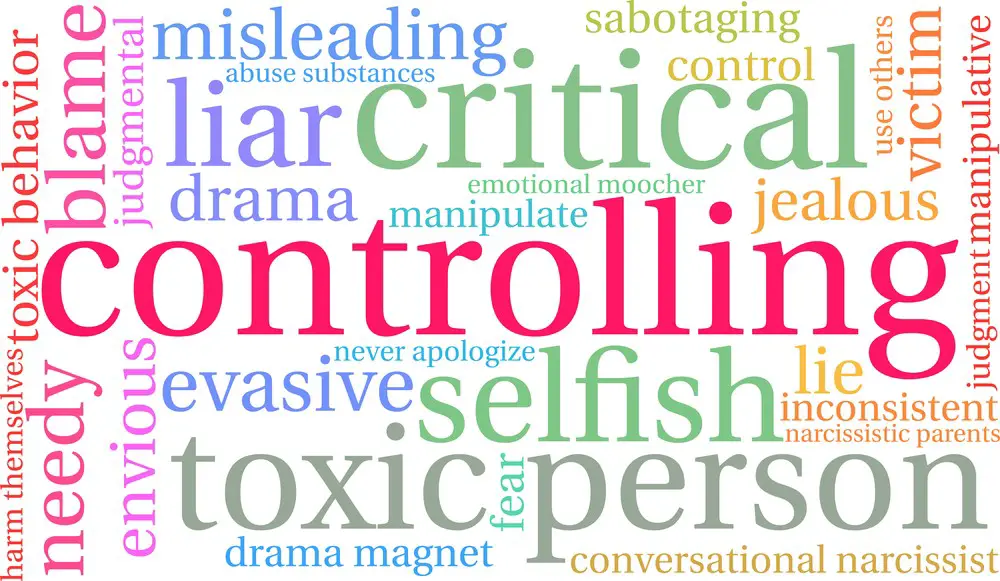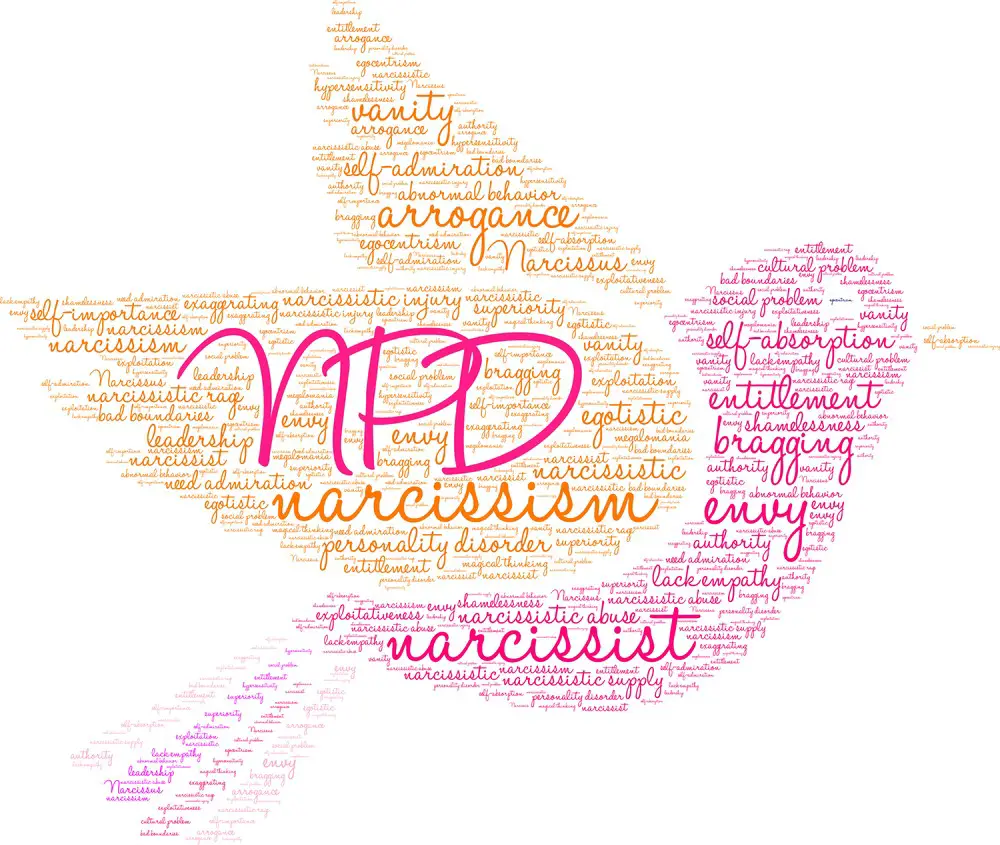As a BetterHelp affiliate, we receive compensation from BetterHelp if you purchase products or services through the links provided
Narcissist enablers can be found in various settings, from intimate relationships to families and workplaces. These individuals play a critical role in perpetuating the toxic dynamics of narcissistic abuse. They often feel powerless to stand up to the narcissist, unwittingly contributing to the abuse by validating and supporting their harmful behaviors.
It’s essential to recognize the role of narcissist enablers in this context because these individuals not only enable the narcissist’s destructive tendencies but often find themselves suffering. Recognition of this pattern is the first step towards healing and breaking free from the cycle of abuse.
Key Takeaways
- Narcissist enablers unwittingly contribute to toxic dynamics in relationships and families
- Recognizing the role of enablers is crucial for both their healing and ending the cycle of abuse
- Boundary setting and self-awareness are key components for enablers to break free and heal

Understanding Narcissist Enablers
Narcissist enablers are individuals who, knowingly or unknowingly, support and enable the destructive behavior of narcissists. These enablers often have certain traits and may struggle with codependency and low self-esteem, further complicating their relationship with narcissists.
Enabler Traits
Narcissist enablers often display the following characteristics:
- Empathy: They are compassionate and understanding, which narcissists can manipulate.
- Loyalty: They may remain committed to the narcissist even when it is not in their best interest.
- Support: They provide emotional, financial, or other support to the narcissist, reinforcing the narcissist’s behavior.
- Avoidance of conflict: They may avoid confrontation, allowing the narcissist to dominate and control the relationship.
Codependency
Codependency is a common issue in relationships that involve a narcissist enabler. Codependent individuals often:
- Feel responsible for the narcissist’s emotions and well-being
- Sacrifice their own needs in favor of the narcissist’s
- Struggle with setting and maintaining boundaries
- Stay in the relationship because they believe they can change or “fix” the narcissist
This codependent dynamic can make it difficult for the enabler to recognize and break free from the harmful patterns created by the narcissist’s behavior.
Low Self-Esteem
Low self-esteem often plays a significant role in the existence of a narcissist enabler. Individuals with low self-esteem may:
- Believe they don’t deserve better treatment
- Fear being alone or abandoned
- Seek validation from the narcissist
- Feel powerless to change the situation
This low self-esteem can make it harder for the enabler to recognize the negative impact of their relationship with the narcissist and take steps to protect themselves.
In summary, understanding the traits, codependency, and low self-esteem of narcissist enablers can help shed light on the complexities of their relationships with narcissists. Recognizing these patterns can be the first step toward breaking free from the cycle of enabling and empowering the enabler to establish healthier connections.

Narcissistic Abuse Dynamics
Victim and Abuser Relationship
In narcissistic abuse dynamics, the victim often faces manipulation and intimidation from the abuser. The abuser, typically suffering from a narcissistic personality disorder or displaying the traits of a covert narcissist, strives to maintain control and power over the victim. They may employ tactics such as gaslighting, a form of psychological manipulation to make the victim doubt their thoughts and feelings.
Flying Monkeys
Flying monkeys are individuals who, knowingly or unknowingly, aid the narcissistic abuser in perpetuating their manipulation and abuse toward the victim. They often serve as an extension of the abuser’s control, further confusing and isolating the victim. Flying monkeys may not be aware of the abuser’s true intentions, but their actions can significantly impact the victim’s mental and emotional well-being.
Scapegoating
Scapegoating is a tactic commonly used by narcissistic abusers to project their shortcomings and insecurities onto an innocent victim. This projection allows the abuser to shift blame and responsibility away from themselves and onto the scapegoat. In this scenario, the victim is made to feel guilty and unworthy, while the abuser maintains a self-righteous facade. Scapegoating can cause the victim to internalize the blame, further cementing the abuser’s control and influence over them.
Family and Relationships
Narcissistic Families and Roles
In narcissistic families, family members often take on specific roles to support the narcissist’s ego or false self. A common role is the narcissist enabler, who passively or actively assists in the narcissist’s abusive behavior. Other roles in the family may include the golden child, who is showered with praise, and the scapegoat, who endures blame and criticism.
Narcissistic family dynamics can create an environment that fosters low self-esteem and self-worth among family members, particularly those who try to please the narcissist and become enablers. The enablers may sacrifice their own needs and desires to ensure the well-being of the narcissist, perpetuating the unhealthy dynamic.
Narcissistic Relationship Patterns
In narcissistic relationships, partners often end up as enablers, tolerating or enabling the narcissist’s abusive behavior. A few common patterns in such relationships include:
- Gaslighting: Narcissists manipulate their partners by making them doubt their perceptions, memories, and experiences. Enablers may come to distrust their thoughts and feelings, reinforcing the narcissist’s control.
- Emotional Manipulation: Narcissists use tactics such as guilt and shame to induce emotional reactions in their enablers. They may exploit these reactions to assert power and influence in the relationship.
- Isolation: Narcissists attempt to distance their enablers from friends, family, or support networks, making them more dependent on the narcissist.
- Withholding Affection: By controlling access to emotional and physical affection, narcissists can manipulate their enablers, conditioning them to comply with their demands.
By understanding the characteristics of narcissistic families and relationships, individuals can identify unhealthy dynamics and work towards breaking free from abusive environments.
Boundary Setting and Stopping Enabling
Establishing Boundaries
Setting boundaries is a critical step in dealing with a narcissist enabler. Boundaries help individuals maintain control and establish a healthy sense of power within relationships. To establish boundaries, it is essential to have a clear understanding of one’s personal values, needs, and limits. When boundaries are set, they allow people to avoid being controlled or manipulated by the narcissist.
In a relationship with a narcissist enabler, it is crucial to communicate these boundaries clearly and assertively. This can be done through direct conversation, establishing consequences for unacceptable behavior, and adopting a consistent approach to enforcing these boundaries. By doing so, the enabler will recognize that their actions can no longer control or dictate the relationship dynamics, which can lead to positive change.
Overcoming Fear-Based Enabling
Fear often plays a significant role in maintaining enabling behaviors. Enablers may have a deep-rooted fear of losing the relationship, experiencing guilt, or facing retaliation from the narcissist. To overcome fear-based enabling, enablers must confront their fears and examine the beliefs that fuel them.
One approach to overcoming fear-based enabling is to challenge irrational beliefs, such as the idea that the enabler is fully responsible for the narcissist’s well-being. This can be accomplished by seeking support from trusted friends or therapists who can offer an objective perspective and help in reframing these beliefs.
Another effective technique for overcoming fear-based enabling is disengaging from the narcissist’s manipulation tactics. This means recognizing when the narcissist tries to provoke guilt, fear, or control and choosing not to engage in emotional reactions. Mindfulness or grounding exercises can also help maintain emotional stability and detach from manipulative behavior.
In summary, setting boundaries and overcoming fear-based enabling involves understanding one’s values, clearly communicating these boundaries, seeking support, and disengaging from manipulation. By implementing these strategies, enablers can regain control and power within the relationship, ultimately preventing further enabling of the narcissist’s destructive behaviors.
Healing and Moving Forward
Therapy and Support Systems
Healing from the effects of a narcissist enabler can be difficult but is possible with the right approach. One useful method is engaging in therapy, which allows individuals to process trauma and stress stemming from their experiences. A qualified therapist can provide validation, empathy, and compassion, helping the individual recognize and move past any denial they may be experiencing.
Additionally, it’s crucial for those healing from the effects of a narcissist enabler to establish strong support systems. This can include friends, family members, or support groups that understand and empathize with their experiences. These support systems can help counteract the lack of empathy previously experienced and provide ongoing encouragement and understanding.
Self-Esteem and Self-Worth Reconstruction
Rebuilding self-esteem and self-worth is another essential aspect of the healing process. To do this, individuals must learn to recognize their inherent value and let go of any negative beliefs instilled by the narcissist enabler. This can be achieved through various methods, such as:
- Practicing self-compassion and self-care
- Identifying and challenging negative self-talk
- Engaging in activities that bring joy and a sense of accomplishment
- Surrounding oneself with positive influences and role models
By rebuilding their self-esteem and self-worth, individuals can develop the resilience and strength necessary to move forward from the damaging effects of a narcissist enabler. Through therapy, support systems, and self-esteem reconstruction, they can find the path to healing and create a healthy and fulfilling future.

Effects of Enabling on the Narcissist
Entitlement and Superiority
Enabling a narcissist often leads to an increased sense of entitlement and superiority. This can manifest in various ways, such as the narcissist constantly demanding special treatment or believing their needs and wants are more important than everyone else’s. When enablers constantly cater to narcissists’ desires and whims, it reinforces the belief that they deserve everything they ask for.
This superiority complex can affect narcissists’ relationships with others, as they may frequently engage in condescending or dismissive behavior. They might believe they are smarter, more attractive, or more successful than others, further feeding their sense of entitlement.
Responsibility and Consequences
Another effect of enabling a narcissist is avoiding responsibility and consequences for their actions. Enablers often shield narcissists from facing the natural consequences of their behavior, allowing them to continue their self-centered actions without facing repercussions.
For example, an enabler might make excuses for a narcissist’s poor behavior or even take on their share of responsibility in a given situation. This lack of accountability can lead to further destructive behavior, as the narcissist is not forced to confront their actions and the potential harm they cause.
When enablers constantly protect a narcissist from the consequences of their actions, it can create a dangerous cycle wherein the narcissist continues to engage in destructive behaviors without fear of repercussions. This lack of accountability can have a detrimental impact on both the narcissist and those around them.
Additional Considerations
Financial and Legal Issues
Narcissist enablers often face financial and legal issues due to their involvement in toxic relationships. They may be responsible for the narcissist’s finances, enabling dysfunctional behavior. In doing so, they become entangled in the narcissist’s financial woes, making it difficult for them to extricate themselves.
A common issue enablers face is trauma bonding, where they become emotionally attached to the narcissist due to their shared experiences. This can lead to a cycle of attempting to fix or save the narcissist while avoiding personal consequences, further entrenching the enabler in the relationship.
Furthermore, enablers may become embroiled in legal battles due to the narcissist’s actions. This can manifest as property disputes or even criminal charges if the narcissist’s behavior becomes unlawful. Due to their involvement, The enabler can be partially responsible for these issues.
Childhood and Past Influences
The development of an enabler is often rooted in childhood trauma or a difficult childhood. This contributes to the individual’s vulnerability, making them susceptible to toxic behavior and narcissistic relationships. Some factors that may influence an enabler’s past include:
- A history of childhood trauma, such as abuse, neglect, or exposure to violence. These experiences can foster a sense of insecurity and low self-worth, leading to the desire to seek validation through unhealthy relationships.
- A difficult childhood marked by unstable family dynamics or unstable caregivers. This can result in a lack of understanding about healthy boundaries and relationships, making enablers more susceptible to nurturing toxic behavior.
Understanding the role of these past experiences and influences is crucial to addressing the enabler’s behavior and breaking the cycle of dysfunction. By acknowledging the origin of these patterns, the enabler can begin to challenge and change the toxic dynamics within their current relationships.
FAQs
What is a narcissist enabler?
A narcissist enabler is an individual who supports, encourages, or enables the narcissistic behavior of another person. They often do this unintentionally or subconsciously by validating the narcissist’s distorted self-importance and reacting to their manipulative tactics.
How do enablers contribute to narcissistic behavior?
Enablers contribute to narcissistic behavior by:
- Providing attention and admiration to the narcissist
- Excusing or justifying the narcissist’s actions
- Failing to set boundaries or assert their own needs
- Allowing the narcissist to take advantage of them
What is the relationship between a narcissist and an enabler?
A power imbalance typically characterizes the relationship between a narcissist and an enabler. The narcissist receives support and validation from the enabler, while the enabler is emotionally manipulated, exploited, or abused by the narcissist. These relationships can be found in romantic partnerships, families, friendships, and professional settings.
Why do people become enablers?
People may become enablers for several reasons, including:
- The desire to maintain the relationship with the narcissist
- A lack of self-esteem or self-worth
- Fear of retaliation if they withdraw support from the narcissist
- Codependency or emotional dependency on the narcissist
How can enablers learn to recognize and avoid enabling behavior?
Enablers can take several steps to recognize and avoid promoting narcissistic behavior. These include:
- Learning about narcissism and how to identify its traits
- Developing self-awareness and practicing self-care
- Prioritizing their own needs and setting healthy boundaries
- Seeking professional advice or support in the form of therapy or support groups
- 7 Ideas to Help You Relax and Unwind on a Family Vacation - April 27, 2025
- How Having Cybersecurity Protection Helps You Relax - April 25, 2025
- 8 Reasons Why Spending Time Outside Calms You Down - April 25, 2025
This site contains affiliate links to products. We will receive a commission for purchases made through these links.



